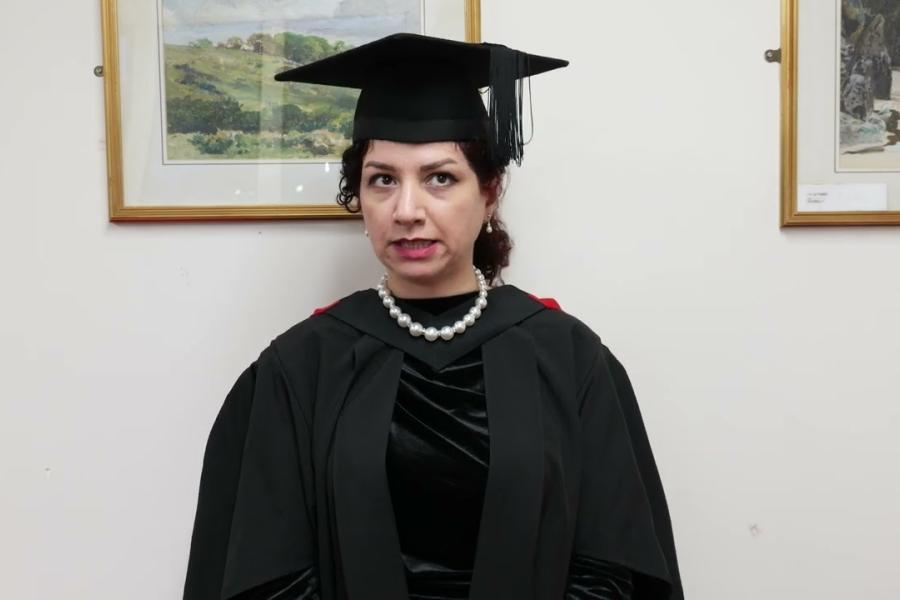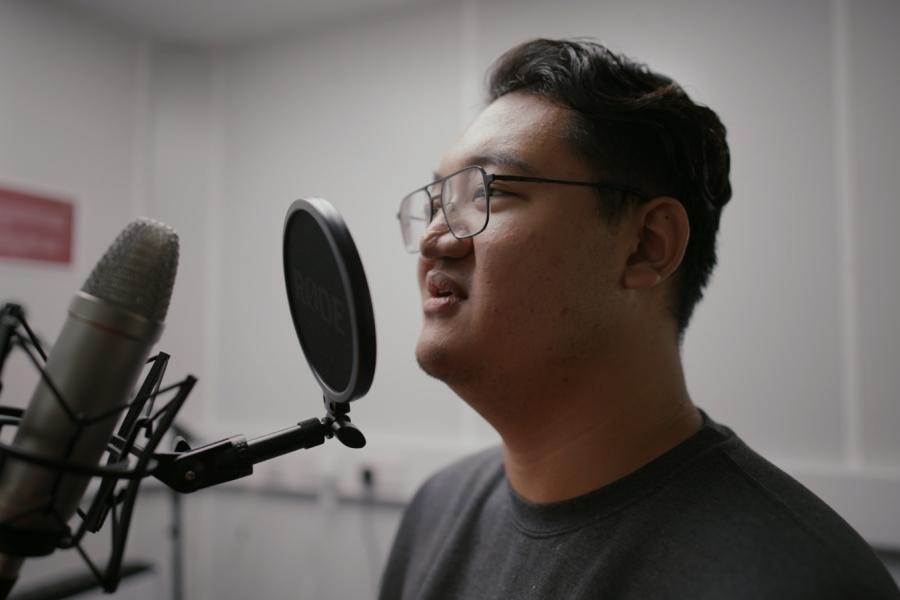About This Course
Bangor University’s MA in Applied Linguistics for TEFL provides postgraduate-level training for students who wish to learn about the theoretical, practical, and teaching aspects of Teaching English as a Foreign Language (TEFL), as well as providing competence and critical understanding of a wide range of aspects of the English language and English linguistics (sociolinguistic aspects of English, the grammar, sound system and semantics of English, the history of English, 1st and 2nd language acquisition, psycholinguistics as well as issues pertaining to English as an international language and bilingualism).
This course is designed for home or international students who wish to pursue a career in Teaching English as a Foreign Language (TEFL) to non- native speakers of English. And the programme is specifically aimed at students seeking careers in multilingual and international contexts – where an awareness of and ability to deploy different genres of English communicational strategies is of the utmost importance.
We are an accessible, friendly Department whose staff who are passionate about passing on their expertise and subject knowledge and committed to delivering the highest quality learning experience for our students. Our research informs our teaching provision at all levels, with our students benefitting from enthusiastic staff at the cutting-edge of academic enquiry and developments. Our staff is committed to providing an excellent student experience with strong personalized student support throughout the duration of your MA Applied Linguistics for TEFL studies.
Following taught components students on this degree will complete an independent research-based Masters level dissertation project. The staff in our Department provide excellent personalized supervision and academic support for dissertations on wide range of Applied Linguistics for TEFL topics using applied, theoretical, experimental, corpus-based or ethnographic methodological frameworks. These include are not limited to:
- TEFL (Teaching English as a Foreign Language)
- SLA and language teaching
- psycholinguistics
- child language acquisition
- 2nd language acquisition
- discourse analysis
- corpus linguistics
- language and communication
- phonetics & phonology
- morphosyntax
- semantics and pragmatics
- historical linguistics
- language variation and change
- language and communication
- bilingualism / multilingualism.
Students on our Applied Linguistics TEFL MA can use state-of-the-art learning facilities which include:
- A professional grade sound / recording studio and speech laboratory (with Yamaha, Alesis and RØDE recording equipment)
- An eye tracking laboratory (with a Tobii Pro X2-60 eye tracker)
- An event-related potential (ERP) laboratory (with an actiCHamp Plus ERP machine)
- And dedicated corpus-linguistics software and resources.
Our staff also have expertise in and provide support for the following:
- Statistical software such as: SPSS, R-Statistics and Excel
- Experimental psychology software such as E-Prime, GORILLA Experiment Builder, Open Sesame and Webexp.
- Acoustic and phonetic analysis software such as: Audacity, Praat, and SIL Speech Analyzer
- Standardised psychometric /language tests (e.g., EVT, BPVS, NARA, WISC, K-BIT, TROG, CELF)
- A wide range of specialized corpora and concordance software including CHILDES and CLAN.
At Bangor you will be part of a vibrant, innovative post graduate research community which is supported through various events throughout the year, ranging from individual talks to informal seminars and workshops to large conferences. Many of these are open not just to academic staff, but also to students and to the general public.
Course Duration
1 year full-time, 2-3 years part-time.
My name is Elham Taheri, and I have studied applied linguistics for Tefal teaching English as a foreign language.
First of all, I enjoyed being taught by very professional teachers.
Of course, I have studied English language before, but this time it was more professional and I loved that.
It's a cosy place and a friendly one.
And the course, because it has both theoretical parts and practical part is really helped me.
I learnt a lot, not only in classes but also in the practical situations, using the theories that are used in my classes.
And as I said, because of the professional teachers here, I learnt a lot
Right now, exactly. After I finished my course here, I moved to London and fortunately found a job in a college in London.
I didn't think I did that easy, but fortunately because I was graduating from Bangor university,
it was easy for me to find a job and I loved my job as a teacher.
Course Content
What will you study on this course?
Compulsory Modules
EFL Theory- This module introduces the theoretical basis of teaching English as a foreign language, and examines the core areas and issues faced by teachers and learners.
Second Language Acquisition and Language Teaching - This module examines how a second language is learned, the processes involved and the resulting pedagogical implications for language teaching.
Teaching EFL - This module introduces students to relevant teaching methodologies and equips them to evaluate and apply those methodologies. This is also a practical module where students observe actual teaching of non-native students and then do some teaching supported by a mentor.
Linguistics Research Methods - This module provides the necessary foundations, training and tools to design and carry out qualitative, quantitative, experimental or ethnographic research within linguistics, as well as the training and experience to develop, design and carry out an independent Master’s level research-based dissertation project employing the usual conventions in linguistic / applied linguistic literature.
MA/MSc Dissertation - In this module students will conduct a small-scale, yet significant piece of individual research to an advanced level and write a 15-20,000-word dissertation on it. Students are assigned a member of staff whose research interests best and/or most closely connects with the topic as a supervisor. The supervisor will assist the student to focus the scope, methodology and content of their dissertation, as well as giving advice throughout the project. Under the guidance of the supervisor, students will focus and fine tune their research question, survey relevant literature, plan the project, decide on a methodology, consider the need for ethical approval and act accordingly, collect and analyse data (depending on the nature of the research) utilizing an appropriate analytic framework, and write up the project to form the dissertation which will address the research question in light of the findings
Optional Modules
Modules vary from year to year, they can include:
- Language and Communication
- Historical Linguistics
- Psycholinguistics
- Language Change
- Language Contact & Bilingualism
- Child Language Acquisition
- Language Disorders & Bilingualism
- Bilingualism and Acquisition Issues
- Speech Science
- Phonology in Bilingual Acquisition
- L2 Speech Learning
- Welsh Linguistics
- Cognitive Discourse Analysis
- Using Corpora: Theory & Practice
- SLA and Language Teaching
- Language Technologies/Technolegau Iaith
Non-native English speakers may be asked to take zero-credit courses with ELCOS to help with their English, unless exempted by their tutor.
Course content is for guidance purposes only and may be subject to change
Modules for the current academic year
Module listings are for guide purposes only and are subject to change. Find out what our students are currently studying on the Applied Linguistics for TEFL MA Modules page.
Course content is for guidance purposes only and may be subject to change.
Entry Requirements
2(i) undergraduate degree normally required in a relevant discipline and/or relevant professional experience.
Applicants who do not speak English as their native language must pass the IELTS English test with a score of 6.5 (with no element below 6.0).
Students who have an overall score of 5.5 on the IELTS can take a summer presessional course in the University’s English Language Centre for Overseas Students (ELCOS) prior to beginning their MA.
Careers
Bangor University’s MA in Applied Linguistics for TEFL will give you a detailed understanding of how to teach English as a foreign language for various professional purposes across the globe. In addition to gaining class-room experience you will also have the opportunity to develop strong research and analytical skills as well as the ability adopt/use different strategies for communication and presentation in English in a range of multilingual and international contexts.
Although this is not a formal teaching qualification, it gives students who wish to go on to teach English to non-native speakers the theoretical and linguistics background they need as well as offering practical, classroom experience. Opportunities exist to teach in countries all over the world, e.g., in universities, colleges or private language schools. After successful completion of the MA in Applied Linguistics for TEFL, you may decide to pursue an academic career and apply for a PhD.



